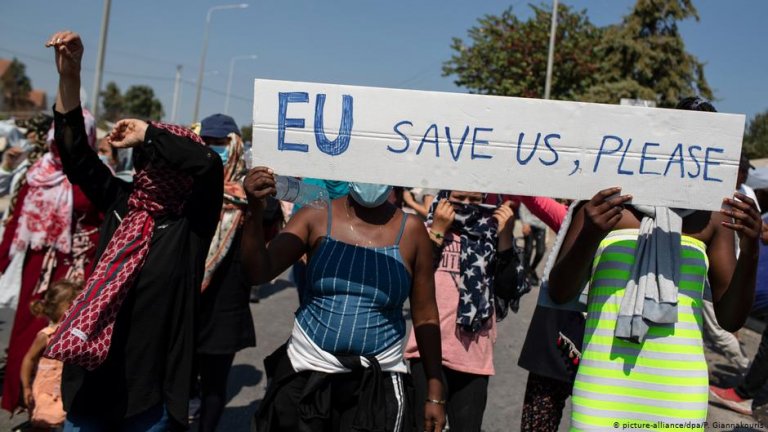
On the 19th of January 2022, the new European Union Agency for Asylum (EUAA) replacing the EASO started its work under the new pact on migration and asylum. Its main purpose will be to strive for uniformity within the EU of the reception standards and enhance a fairer and faster decision making by the member states in the asylum’s applications. Only for the year 2022 it will receive one hundred seventy-two millions euro, which among others will enable to launch eight operations in different member states. Those missions will have for main objectives to enable a quicker deployment of personnel to critical areas and enhance the refugees’ human rights protection. This new agency, which has been discussed since 2016 needs to have a quick start in order to compensate alarming stituation many refugees are and will be, since still more and more refugees are coming to Europe due to several regional conflicts.
Still debated new competences’ attribution
In order to fulfill its mandate, the EUAA, disposes of new competences such as being in charge of organising and coordinating appropriate operations support in case of exceptional pressure, which can encompass assisting member states in creating an asylum reserve pool of minimum five hundred persons. Besides, the EUAA is now allowed to make emergency interventions in case of insufficent actions by the member states, when they refuse to request or accept the EUAA’s assistance or if they are unwilling to comply with commission’s recommendations’.
However, one of the main improvement is the monitoring mechanism, which will be useful to prevent member states’ deficiencies instead of dealing with it when the wrong is done. Nonetheless, this highly expected mechanism has not been put in place at the same time than the agency’s launch. Indeed, it will partly enter into force at the end of 2023 and partly once the new asylum’s law will be agreed to. This delay is mainly due to debates about the extent of power of the agency in case of member states lapses. Originally, it decided strong power to monitor the operational and technical operations, yet in 2017 the proposal was changed into assisting the member states and not monitoring anymore. Therefore, the on-site visits or the evaluation of samples of individual decisions, would not be used despite their high relevance to deal with nowadays issues. Moreover, this mechanism, in order to be the most efficient and be really the corner stone of this agency’s reform, would need to cover also detention practices and legal assistance, as well as include experiences and assessment of non-governmental actors in order to dispose of all perspective’s information. If this limited function of the monitoring mechanism is to be adopted, concern would raise on the objectives concretly followed by the agency instead of its original mandate.
Furthermore, the European Commission alway refers to the EUAA as a fully-fledged agency, yet it has not been confered decision-making powers regarding asylum application, neither executive or enforcement tasks on the ground. Even if it would increase the chance of success in its mandate, because it will be far more easier to harmonise and have a look from a broader picture, the decision-making is in the hand of the member states. It could be the next level of the european integration, however the EU already witnessed the leave of one of its member state justified by the migration policy, which confirms the reluctance of member state to let go some of their sovereignty.
A need to quick results despite the critics
Even before its launch, the EUAA faced critics. First, the agency lacks independence. The board still composed in the same way that EASO has one representative from each member state, two from the commission and one without voting right from the UNHCR. Since immigration is a highly sensible topic, being seen differently in all member states, the Board risks to be under member states’ influence and be stuck for decisions, which is at the opposite of its mandate to act quickly during exceptional circumstances. Moreover, this lack of transparency of the board will be detrimental for countries origin information, since it is supposed to fight disparities between member states by coordinating efforts and engage in developing a common analysis. Thus, it needs guarantees to ensure objectivity and impartiality and could for example introduce a peer review by a formal panel of independent experts.
Moreover, the regulation setting the agency foresses cooperation with third countries in order to coordinate resettlement activities and increase their capacity building. However, during the process confidentiality issues may arise. Indeed, there is a risk personal informations on refugees seeking asylum in order to escape persecution, would be transmitted to the country fled by the refugees. Therefore, an amendment shall be added and specify thatt non-officials shall be present in operational and technical activities if it would lead to the disclosure of such harmful information to the wrong persons.
The new agency really needs to fulfill its mandate effectively, striving for a common and well-managed answer by member states in order to comply with international laws and prevent any terrible crisis such those, which occurred at the end of 2021. (Read more about it with the article posted on the 17th of November 2021 titled ‘Renewed tensions alons the Poland-Belarus’s border’). Refugees need to be treated as human being and not instrumentalized by states for geo-political reasons. Moreover, the EUAA has to be flawless due to the legal actions launched and investigations against a parallel agency: Frontex. Even if Frontex deals only with the boarder control, it is still related to refugees’ conditions and could stain the brain new agency and EU policies, striving for better refugees’ treatment.
Bibliography
ECRE ‘Moving on with the EU asylum agency’ <https://www.ecre.org/wp-content/uploads/2021/01/ECRE-Policy-Note-Moving-on-with-the-EU-Asylum-Agency-January-2021.pdf> accessed on the 20th of January 2022
EU migration law blog ‘From EASO to the European Agency for Asylum: „Business as Usual?”’ <https://eumigrationlawblog.eu/from-easo-to-the-european-agency-for-asylum-business-as-usual/> accessed on the 20th of January 2022
Euractiv ‘EU border agency must boost transparency of its operations-EU ombudsman’ <https://www.euractiv.com/section/global-europe/news/eu-border-agency-must-boost-transparency-of-its-operations-eu-ombudsman/> accessed on the 20th of January 2022
EU reporter ‘European Union Agency for Asylum begins work’ <https://www.eureporter.co/politics/2022/01/19/euaa-begins-work/> accessed on the 19th of January 2022
European Commission ‘New Pact on Migration and Asylum: new mandate, new start for the European Union Agency for Asylum’ <https://ec.europa.eu/commission/presscorner/detail/en/IP_22_414> accessed on the 19th of January 2022
Reliefweb ‘New EU Agency for Asylum starts work with reinforced mandate’ <https://reliefweb.int/report/world/new-eu-agency-asylum-starts-work-reinforced-mandate> accessed on the 19th of January 2022
UNHCR ‘UNHCR’s recommendations for the French and Czech Presidencies of the Council of the European Union’-January 2022 <https://www.refworld.org/docid/61d71e864.html> accessed on the 20th of January 2022
By The European Institute for International Law and International Relations.














